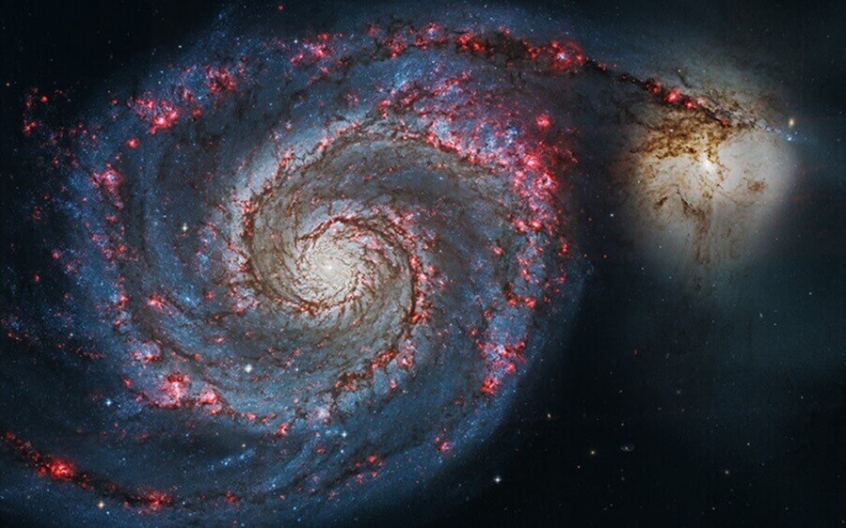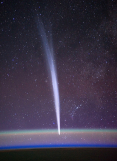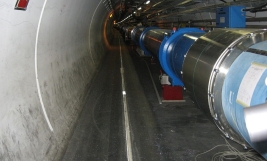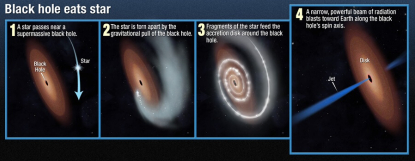
Think only human beings can burp after a hearty meal? Those black holes in space, notorious for "eating" gas and stars, can do that, too.
A team of space scientists was able to observe how a supermassive black hole at the centre of NGC 5195—a small galaxy 26 million light years from Earth—released two arcs of gas, preceded by a thin layer of cooler hydrogen gas into its host galaxy.
These findings, discovered using X-ray images from the National Aeronautics and Space Administration (NASA)'s Chandra Observatory and optical images from the Kitt Peak National Observatory, suggest that the hotter gas snatched the hydrogen gas from the heart of the galaxy.
In a CNN report, research team leader Eric Schlegel from the University of Texas attributed this "burp" to the NGC 5195's interaction with a nearby, larger galaxy.
"Apparently, black holes can also burp after their meal," Schlegel was quoted as saying in the CNN report.
"Our observation is important because this behavior would likely happen very often in the early universe, altering the evolution of galaxies. It is common for big black holes to expel gas outward, but rare to have such a close, resolved view of these events," he added.
Study co-author Marie Machacek from the Harvard-Smithsonian Center for Astrophysics (CFA) meanwhile said this so-called "feedback" between the black hole and its host galaxy can change the way the scientific community perceive black holes, considered to be "destroyers" in galaxies.
"We think that feedback keeps galaxies from becoming too large," Machacek told CNN. "But at the same time, it can be responsible for how some stars form. This shows that black holes can create, not just destroy."
The research team unveiled its extraordinary findings at the 227th meeting of the American Astronomical Society.
The researchers further suggested that although they managed to observed it only now, the black hole's "burp" likely happened millions of years ago.
Based on the research team's observations, the inner wave of gas most likely took about three million years to reach its current position, and the outer wave, twice as much.

















